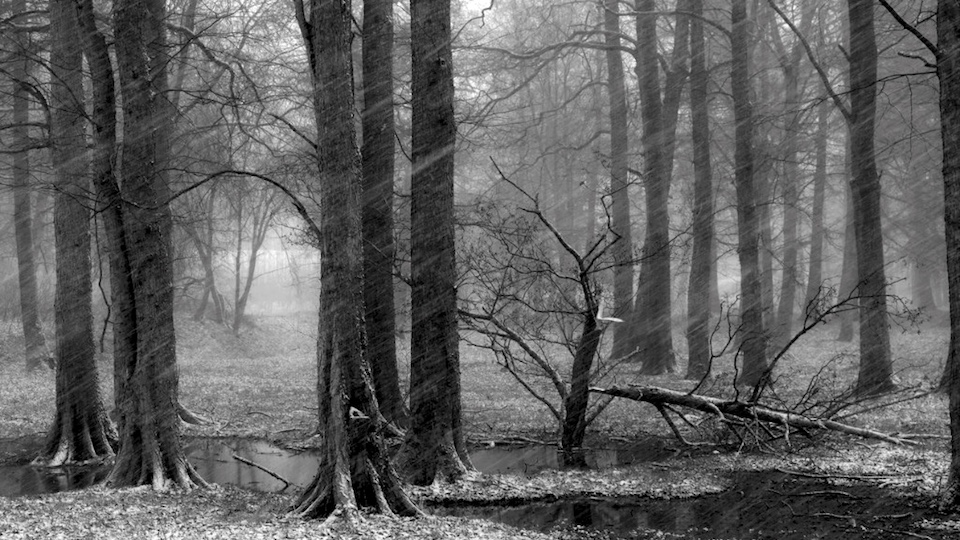
Thou Winter Wind
for SATB chorus (unaccompanied)
This text appears in Act II, Scene 7 of Shakespeare’s comedy As You Like It, sung by a nobleman living in the forest with the unjustly banished Duke. Previously the Duke opined that the material difficulties of their new rural way of life were preferable to the luxury of the court, where there was plenty to eat but no one could be trusted. The young Orlando, also in exile due to the treachery of his brother, has just arrived in the forest expecting to have to fight these “outlaws” for food, and he is shocked by the Duke’s generous offer to share their dinner. The ensuing song accompanies their meal; it acknowledges the suffering caused by the natural world and the arguably greater hardships human beings inflict upon each other, but nevertheless concludes that “This life is most jolly.” Perhaps this sentiment stems from the combination of scenic beauty and unexpected kindness, for the moment overshadowing life’s adversity.
Blow, blow, thou winter wind. Thou art not so unkind As man’s ingratitude; Thy tooth is not so keen, Because thou art not seen, Although thy breath be rude. Heigh-ho! sing, heigh-ho! unto the green holly: Most friendship is feigning, most loving mere folly: Then, heigh-ho, the holly! This life is most jolly. Freeze, freeze, thou bitter sky, That dost not bite so nigh As benefits forgot: Though thou the waters warp, Thy sting is not so sharp As friend remember’d not. Heigh-ho! sing, heigh-ho! unto the green holly: Most friendship is feigning, most loving mere folly: Then, heigh-ho, the holly! This life is most jolly.